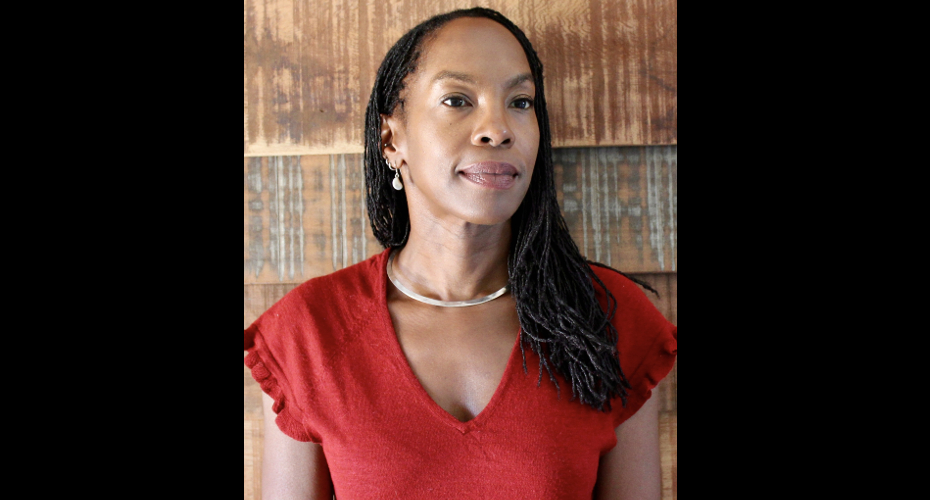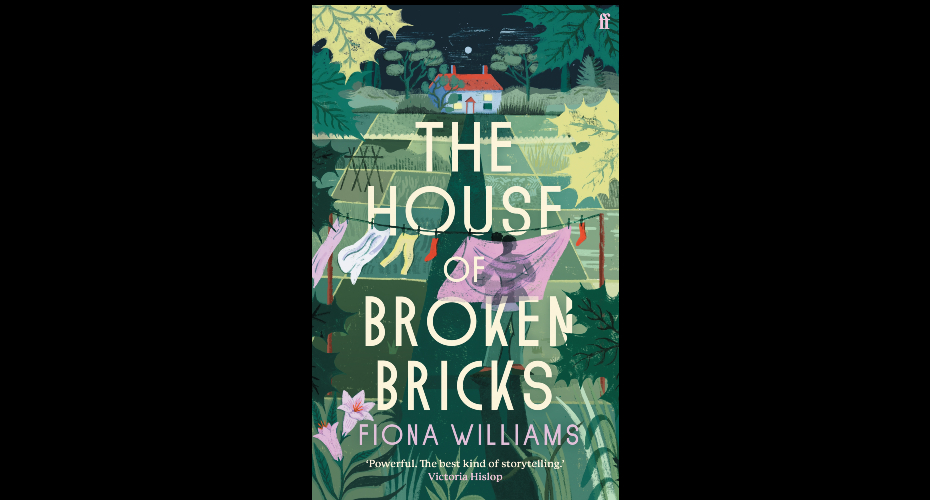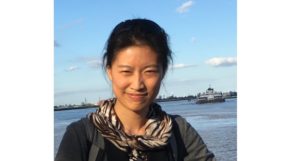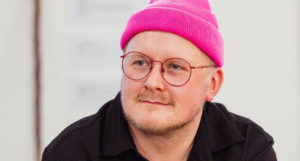Creative Writing PhD student prepares for international launch of her debut novel

A PhD candidate whose critically acclaimed debut novel has been released this week says she is still struggling to comprehend how much her life has changed since the completion of her book.
Fiona Williams has been catapulted into the realm of publishing deals and author speaking tours by the success of The House of Broken Bricks, which she finished in 2021 despite having little creative writing experience.
Signed by Faber after she won the prestigious Bridport Prize, Fiona has spent the past two years working with the publisher preparing for the book’s launch in the UK, with further releases taking place later this year in the United States of America and Germany.
Now, following its official UK publication on Thursday, the author – who has been a PhD candidate in Creative Writing at the University of Exeter since 2022 – admits she is still coming to terms with her new reality.
“It’s intimidating, overwhelming, fun and scary and the imposter syndrome is off the scale right now,” she says, candidly. “I keep waiting for someone to tell me that this isn’t real!”
The House of Broken Bricks tells the story of a mixed-heritage family of four who live in Somerset. Narrated over the course of a year from the viewpoint of each member, the story blends different genres and themes, from nature to nurture, the comedy of rural idiosyncrasies to the drama of a family repairing itself from past trauma.
“It tackles some pretty heavy topics, but I also hope that people feel it is also uplifting, especially in its observations of village life and community,” Fiona says. “It is also a love story, both about the landscape and the central couple. One of the reviews described it as simultaneously urban and medieval, and I love that.”
The eponymous house was inspired by a riverside cottage on the Somerset Levels where Fiona, her husband and two children lived for several years prior to moving, first to a smallholding on the other side of the village and then, most recently, to Exeter. She wrote the novel, sat at her kitchen table while the seasons passed outside the window – a sense of natural circularity that she says is reflected in the story.
And while the plot is not autobiographical, Fiona says there are some parallels between her family and the lives of her characters Tess, Richard and their twin children Max and Sonny, not least her shared migration west from her home city of London. Though in Fiona’s case, this move took a more circuitous route, one which has included stops in Singapore and Australia thanks to her career as a medical writer, and seven years aboard a narrow boat that she and her husband built on the waterways between Oxford and Bath. And Fiona and Tess are also twinned in grief, with Fiona losing her mother in 2014, a long-lasting trauma that pushed her to begin writing creatively as a form of therapy.
“I was a bit of a wreck at the time, and I came to recognise both my own mortality and my tendency to be a bit of a ‘surface dweller’,” she says. “This prompted me to begin writing. Despite being an avid reader, and having many people tell me that I should write something, I’d never done anything creative like that, but I found it to be cathartic.”

This experience also revealed to Fiona a desire to learn more about creative writing and how to structure a story. Biting down on her insecurity over the lack of humanities in her past education, she applied to Bath Spa for their MA in Creative Writing. Nervously, she attended an interview and submitted several pieces of work, and to her immense surprise she was accepted onto the programme for the 2019/20 academic year.
It proved to be a transformative experience, and despite the interruption to her studies wrought by the pandemic, not to mention juggling the needs of her young family, she achieved a Distinction.
Fiona also emerged from Bath with the makings of a book, which she was encouraged to submit to agents by her former tutors. The response, however, could easily have derailed her dreams there and then, for while she received some positive feedback, there were rejections as well, with one telling her the book was “unmarketable”.
“It did knock me back,” she said. “And it would have been very easy to just walk away at that point, what with a career and a family, and the routine of life. But that criticism also proved to be constructive, in that it made me stop trying to please others. I realised that I was writing the book as I thought a book should be written. It was artificial, and not my voice. So, I literally deconstructed it and rebuilt it into the story I wanted it to be.
“And it probably helped at this point that I didn’t have a formal writing background. Perhaps if I had ‘known the rules’, I wouldn’t have been quite so experimental.”
Fiona submitted three chapters of this revised version to the Bridport Prize in 2021, the international creative writing competition for new writers, and to her amazement, it was longlisted in the Novel category. She was asked to develop the work a little further for the next stage, and again, defying her expectations, she was shortlisted. A few weeks later, she was informed that she’d won.
“It was a shock, and it resulted in three-to-four weeks of utter chaos, with emails from agents, offers, and then going to London to meet people – all the while juggling family and work,” she says. “I ended up spending Christmas writing like crazy to finish the book.”
With an agent now supporting her, the completed manuscript was sent out in time for the London Book Fair, and publisher Faber immediately agreed a pre-emptive deal. A relatively smooth editing process followed, and with early reviews lauding her work, Fiona is preparing for promotional speaking events across the country, as well as a Q&A organised by Quay Words at Custom House in Exeter on February 7.
This has meant that Fiona has temporarily stepped away from teaching Creative Writing undergraduates – her first taste of lecturing – as part of her three-year PhD (for which she was awarded a scholarship).
“These past two years have felt like a rollercoaster, with remarkable highs, punctuated by periods of absolute silence where you’re left thinking ‘will the book actually be published?’” she says. “But now it’s finally here, I’m equally excited for and dreading the launch. And once the book is truly out there, I’ll be able to move on fully to the next project – and that excites me.”



